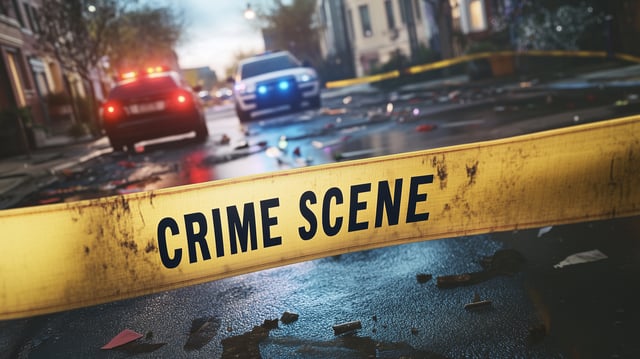
Being the victim of a crime can be one of life’s most traumatic and overwhelming experiences. The immediate aftermath often leaves victims feeling confused, vulnerable, and uncertain about what steps to take next. Whether you’ve experienced theft, assault, fraud, domestic violence, or any other criminal act, it’s crucial to know that you’re not alone and that comprehensive support systems exist to help you navigate this difficult time.
The impact of crime extends far beyond the immediate incident itself. Victims often struggle with emotional trauma, financial burdens, legal complexities, and the challenge of rebuilding their sense of security. According to Alachua County victim services, “Many individuals are unaware of the extensive resources available to help them recover and move forward after experiencing criminal victimization. Understanding these resources can make a significant difference in your healing journey and help ensure you receive the support you deserve”.
Recovery from crime victimization is rarely a linear process, and different individuals may benefit from different types of assistance depending on their specific circumstances. The following five resources represent essential pillars of support that can provide practical help, emotional guidance, and advocacy during your recovery process.
- Victim Compensation Programs
State victim compensation programs serve as a crucial financial safety net for crime victims who have suffered economic losses due to criminal acts. These programs, available in all 50 states, provide monetary assistance to help cover expenses that result directly from the crime. Eligible expenses typically include medical bills, mental health counseling, lost wages, funeral costs, and property damage or replacement.
The application process for victim compensation varies by state, but generally requires filing a claim within a specified timeframe after the crime occurs. Most programs require that the crime be reported to law enforcement and that victims cooperate with the investigation and prosecution when possible. These programs recognize that victims shouldn’t bear the financial burden of crimes committed against them, and they work to help restore some measure of financial stability during the recovery process.
Many victims are surprised to learn that compensation programs can cover ongoing expenses such as long-term therapy, rehabilitation services, and even relocation costs in cases where safety concerns exist. The programs are funded through fines, penalties, and fees paid by convicted offenders, making them a form of restorative justice that helps victims without burdening taxpayers.
- Local Victim Services Organizations
Community-based victim services organizations provide personalized, comprehensive support tailored to the specific needs of crime victims in your area. These organizations typically offer crisis intervention, emotional support, practical assistance, and advocacy services to help victims navigate the complex systems they may encounter following a crime.
Services provided by these organizations often include safety planning, assistance with protective orders, help accessing financial resources, transportation to court proceedings, and accompaniment to medical appointments. Many organizations also provide specialized services for specific types of crimes, such as domestic violence, sexual assault, or elder abuse, with staff trained to understand the unique challenges associated with each type of victimization.
The strength of local victim services organizations lies in their deep understanding of community resources and their ability to connect victims with appropriate local services. They often maintain relationships with law enforcement, prosecutors, healthcare providers, and other community organizations, enabling them to provide comprehensive case management and advocacy services that address both immediate needs and long-term recovery goals.
- National Hotlines and Crisis Support Services
National hotlines provide immediate, accessible support for crime victims regardless of their location or the time of day. These services are staffed by trained professionals who can provide crisis counseling, safety planning, information about local resources, and emotional support during acute periods of distress.
The National Domestic Violence Hotline, the Rape, Abuse & Incest National Network (RAINN) hotline, and the National Center for Victims of Crime helpline are among the most established and comprehensive national resources available. These services are typically available 24 hours a day, seven days a week, and offer support in multiple languages to ensure accessibility for diverse populations.
Beyond immediate crisis support, national hotlines often provide valuable information about legal rights, available resources, and strategies for staying safe. They can help victims understand their options, develop safety plans, and connect with local services in their area. Many also offer online chat services and text-based support for individuals who may not be able to safely make phone calls.
- Legal Aid and Advocacy Services
Navigating the legal system as a crime victim can be overwhelming and intimidating, particularly when dealing with the emotional trauma of victimization. Legal aid organizations and victim advocacy programs provide essential support to help victims understand their rights, participate effectively in the criminal justice process, and access civil legal remedies when appropriate.
Victim advocates work specifically to ensure that victims’ voices are heard throughout the criminal justice process. They can explain court procedures, help victims prepare victim impact statements, provide emotional support during court proceedings, and ensure that victims are notified of important developments in their cases. Many prosecutor’s offices employ victim advocates who work exclusively with crime victims to help them navigate the prosecution process.
Legal aid organizations may also help victims pursue civil remedies against perpetrators, assist with immigration issues related to victimization, help obtain protective orders, and address other legal matters that may arise as a result of the crime. These services are particularly valuable for victims who may not have the financial resources to hire private attorneys but need legal assistance to protect their rights and interests.
- Mental Health and Counseling Services
The psychological impact of crime victimization can be profound and long-lasting, making mental health support an essential component of the recovery process. Professional counseling services, support groups, and trauma-informed therapy can help victims process their experiences, develop coping strategies, and work toward healing and recovery.
Many communities offer specialized counseling services for crime victims, often provided by organizations that understand the unique challenges associated with criminal victimization. These services may include individual therapy, group counseling, family therapy, and specialized treatments for trauma-related conditions such as post-traumatic stress disorder (PTSD).
Support groups provide opportunities for victims to connect with others who have had similar experiences, reducing feelings of isolation and providing peer support during the recovery process. These groups can be particularly valuable for victims of specific types of crimes, such as survivors of domestic violence, sexual assault, or drunk driving incidents.
Moving Forward with Support
Recovery from crime victimization is a personal journey that unfolds differently for each individual. The resources outlined above represent just a starting point for the comprehensive support available to crime victims. By understanding and accessing these resources, victims can take important steps toward healing, rebuilding their lives, and reclaiming their sense of safety and well-being.
Remember that seeking help is a sign of strength, not weakness, and that utilizing available resources is an important part of the recovery process. Whether you need immediate crisis support, long-term counseling, financial assistance, or legal advocacy, these resources exist to help you navigate your path to recovery and ensure that you receive the support you deserve during this challenging time.
Disclaimer
The information contained in South Florida Reporter is for general information purposes only.
The South Florida Reporter assumes no responsibility for errors or omissions in the contents of the Service.
In no event shall the South Florida Reporter be liable for any special, direct, indirect, consequential, or incidental damages or any damages whatsoever, whether in an action of contract, negligence or other tort, arising out of or in connection with the use of the Service or the contents of the Service. The Company reserves the right to make additions, deletions, or modifications to the contents of the Service at any time without prior notice.
The Company does not warrant that the Service is free of viruses or other harmful components












